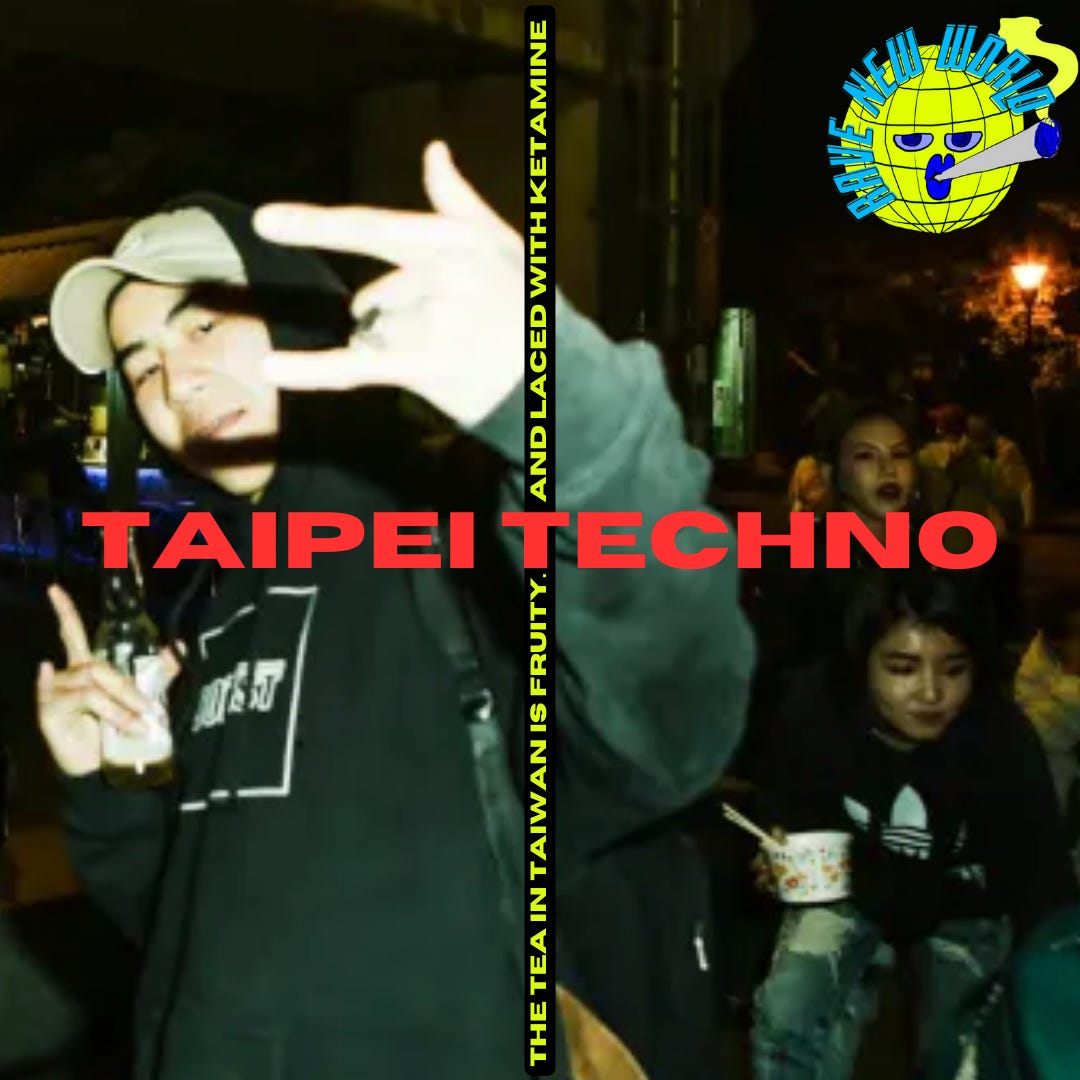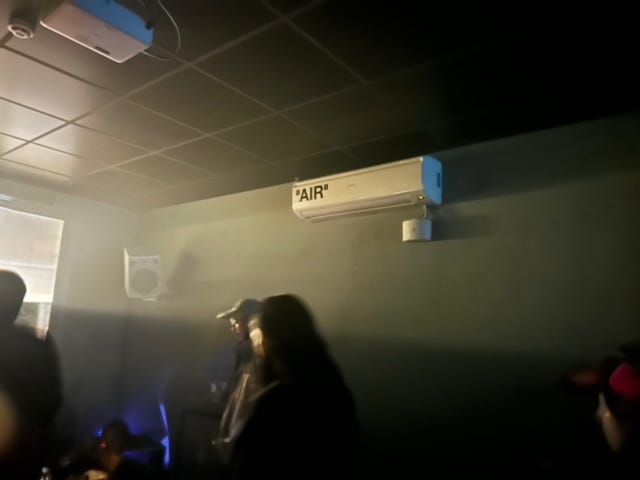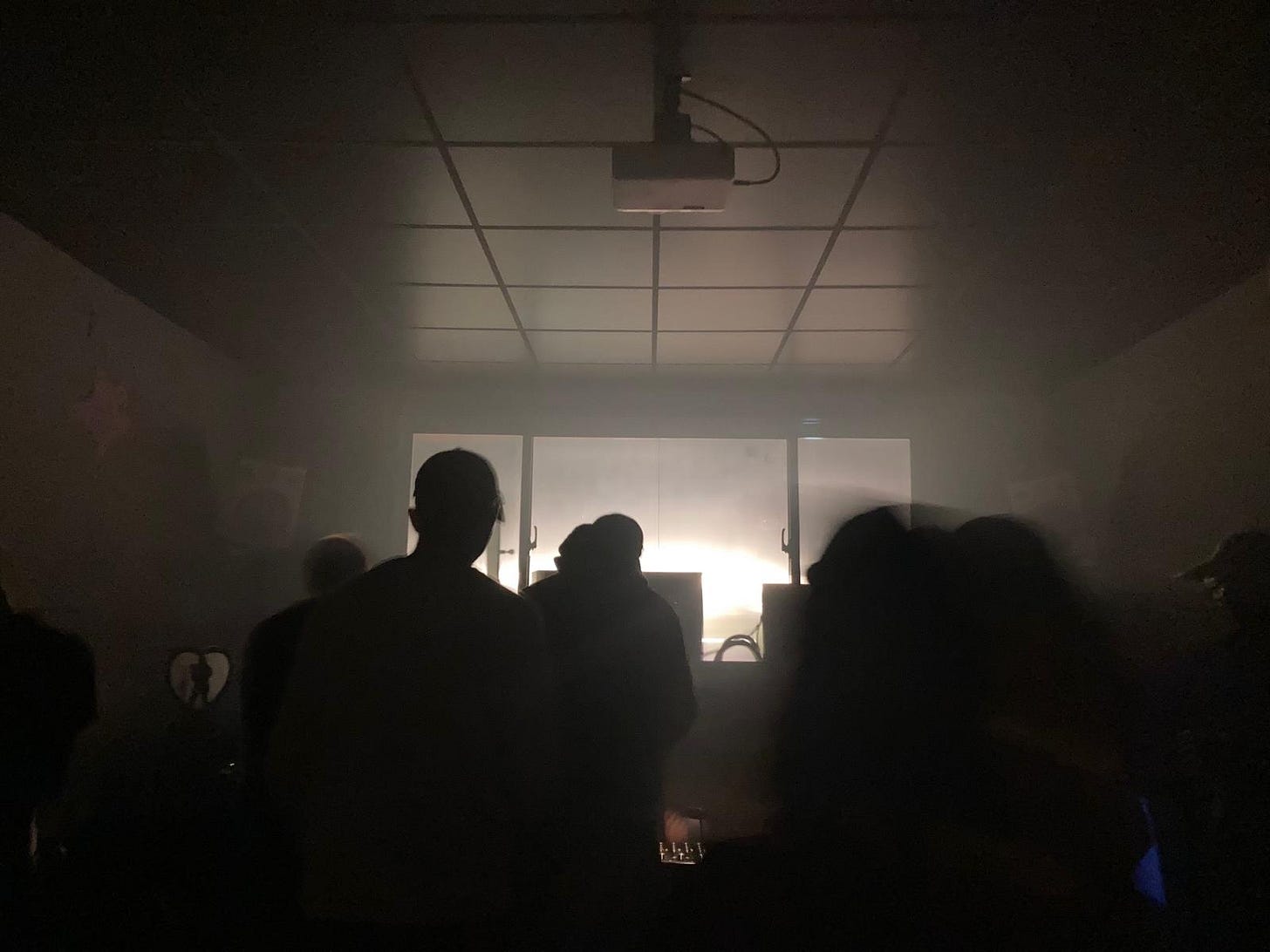I wanted to go to Taipei to find out if queer Asian rave utopia exists. Over the past decade or so, friends who’ve made party pilgrimages to Organik festival or Pawnshop have returned with stories so strange they had the improbable aura of myths: tales of tripping on a beach of black volcanic sand, breakneck-techno parties for queer Asian women, a gay club where the sweaty bodies of shirtless men smelled of heavenly Aesop soap… could such a world truly exist?
As a rave reporter, I am always tracking the global nightlife hubs where new ideas are brewing, but my enthrallment with Taipei’s lore felt more personal. Maybe this psychedelic island glimmering in the midst of hostile seas could be where I’d witness the impossible: a rave culture accepted by a society of people who looked like my parents, and spoke my grandmothers’ tongue.
Growing up in Singapore, I was accustomed to underground music scenes operating in stealth mode, due to the autocratic government’s intolerance for anything that subverted the norm, especially altered states of consciousness. A few months ago, for example, a drag show at a Singaporean art gallery caused a moralistic uproar from the conservative establishment, after inflammatory media coverage resulted in a conservative backlash.
In stark contrast, Taipei’s queer parties operate openly and legally in clubs and government-sanctioned festivals, without the need for nepotism, bribery, or corruption (the real way to “get away with shit” in many parts of Asia). This is due to Taiwan’s unique status as a beacon of democracy and progressive values in Asia, where Confucian patriarchy coexists with a thriving underground party scene. Given my hard-wired association of partying in Asia with risk and stigma, the normalcy of raving in Taipei was confusing–-it was like the math didn’t add up.
Taiwan’s freedom, however, comes with a price: the anxiety of China’s imminent invasion, a fate that many believe is inevitable after decades of cross-Strait tensions. This political precarity ratcheted up even more last January, when the country went to the polls for a close Presidential race watched closely by the rest of the world. Which candidate won the race would determine the country’s future direction: continued sovereignty, or realignment with mainland China.
Friends told me to visit now, before it’s too late – just look at what happened to Hong Kong, these global party nomads said, pointing to the city that many creative types have been fleeing in recent years due to the Chinese government’s heavy-handed crackdown on pro-democracy in 2019. These protests, which were met with tear gas, rubber bullets, and water cannons, effectively silenced dissent and left behind a decimated nightlife scene. Many bars and nightclubs in Hong Kong shut down, hurt by the economic impact, loss of tourism, and overall sense of fear and uncertainty. A similar outcome could easily befall Taiwan. Its window of radical possibility is open now, but no one knows for how long.
I first encountered an enigmatic club called Grey Area through the envious gaze of my Instagram feed. Friends in Singapore’s Strange Weather crew were visiting Taipei to throw a party at the venue, and their striking photos caught my eye. What caught my eye was a flood of white morning light streaming in through a window, radiating off the bodies of smiling homies raising beers around a DJ who seemed to be playing off some kind of… desk? The whole scene seemed so intimate and mysterious, radiating a soft afterparty glow I associate with the most cathartic purges – that almost holy transfiguration when debauchery gives into grace.
I’d never heard of Gray Area so I Googled it, only to be confused by the listing for a 4.7-star Japanese restaurant that popped up with the same address. “Variety of items and delicious dishes,” read the only review, with a grainy photo of cute Taiwanese girls sitting over coffee cups. The reviews from the rave heads were equally inscrutable. “Gray Area is my fav club on the planet!!!” replied LA’s impish rabble-rouser Adam O over email, when I wrote in to his newsletter asking for Taipei recommendations after reading his account of a two-night bender. (The text accompanied a beguiling mix of Chinese trip-hop, California alt-rock, and tribal house from the Taiwanese DJ Tsui on Adam’s dublab radio show.) “Shawn is actually the owner,” Adam added, as if I was supposed to know who he was talking about??
I followed the address to a charming old street in the trendy Zhongshan District that smelled like the pungent flesh of stinky tofu. A door person shyly told us the only house rule: smoking was only permitted on the ground-level bar, not any of the other floors–a rule that the DJs and staff flagrantly disregarded, but was strictly enforced for everyone else, which I loved. The micro-club, which could fit maybe 150 people, had a bizarro logic all of its own.
Keep reading with a 7-day free trial
Subscribe to Rave New World to keep reading this post and get 7 days of free access to the full post archives.






